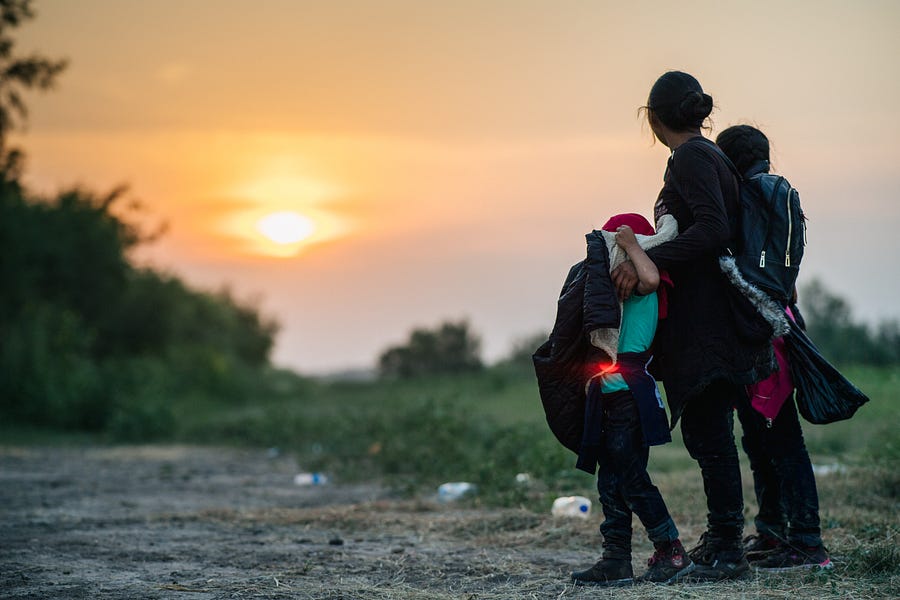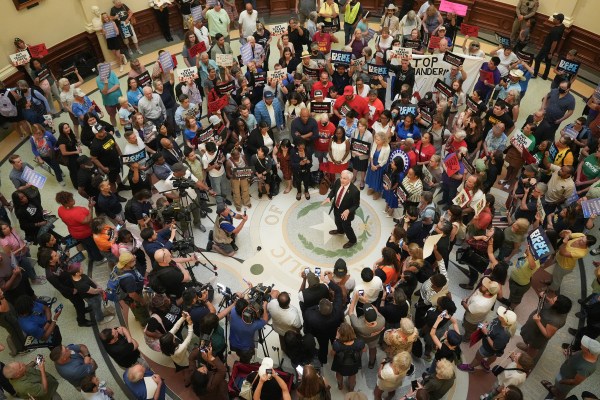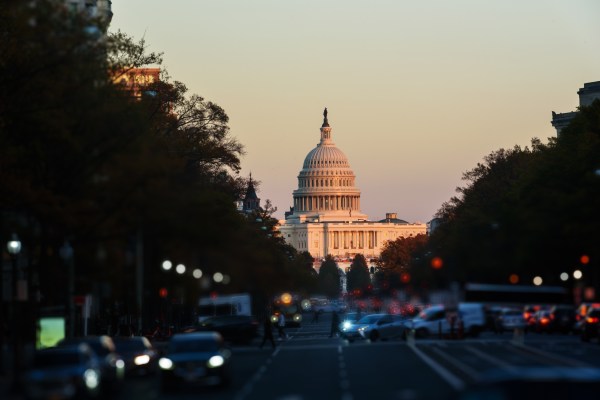The journey from Central America to the southern border of the United States stretches thousands of miles over inhospitable terrain and through areas of Mexico plagued by violence.
And yet the majority of the estimated 2 million people who’ve fled the Northern Triangle countries of El Salvador, Guatemala, and Honduras since 2014 have chosen the U.S. for safety.
Past administrations have tried to deter Central American immigration to the U.S. by simply increasing enforcement, the harshest example being President Trump’s “zero tolerance” policy that separated children from their parents starting in 2017. This blunt force approach, and a 2019 requirement that asylum seekers remain in unsafe camps Mexico while the U.S. processed their cases (the “Migrant Protection Protocols), was not only morally repugnant but did little to quell the number of migrants arriving at the border.
What’s driving this migration, and how can the U.S. effectively respond? It’s a complicated question that begins with a long-term commitment to rooting out corruption. Improving conditions in the Northern Triangle countries (NTC) would encourage more people to remain in their home countries rather than make a dangerous and uncertain journey north. Early moves from the Biden administration, including a visit to Central America by Vice President Kamala Harris, indicate they are staking out such a path.
For decades, illicit criminal networks have committed violence and created widespread insecurity in the NTC. In fact, the 2020 Corruption Perceptions Index from Transparency International reports that the Northern Triangle countries rank worse on corruption than 103 of the 180 countries surveyed.
That corruption has its roots in the violent upheavals of the civil wars and military dictatorships that have ravaged the region. By the time the civil wars in El Salvador and Guatemala ended, more than 300,000 people in the region had lost their lives. This, combined with the decades of military rule in Honduras, created the perfect environment for criminals to seize power and flourish. Today, these criminals operate in the shadows, bribing judges and politicians with money from narcotics and human trafficking and enacting brutal violence in communities throughout the region.
The corruption in Central America has rotted life for an untold number of families: A small business owner in Honduras has to pay a gang just to run his business. He has to pay another gang to escape that gang and get his family to the U.S.-Mexico border. And pay yet another criminal operation to cross the border and request asylum in the U.S.
Women are at particular risk. The Gender Equality Observatory for Latin America and the Caribbean found the highest rates of femicide per 100,000 women in Latin America to be in Honduras and El Salvador: this fact drove Attorney General Merrick Garland to restore the opportunity for women fleeing domestic violence in other countries to apply for asylum protections in the U.S.
It’s possible to overcome these challenges, as Kurt Ver Beek, president and co-founder of the Association for a More Just Society in Honduras, and I wrote about in theBoston Globe. In 2007, the International Commission launched Impunity in Guatemala, and it dismantled 70 illicit networks over 10 years. In 2016 and with U.S. support, the Honduran Special Purge and Transformation Commission cleaned out corrupt cops, firing more than 6,000 police officers. At the same time, the murder rate in Honduras declined by 60 percent.
In 2019, the Trump administration withdrew U.S. support and leadership from these efforts. It should be no surprise that corrupt elites restored their grip on the Northern Triangle, gangs flourished at the local level, and families headed north to escape the impunity.
Until corruption is addressed in Central America, migration to the U.S. will continue. Harris’ direct involvement in the region offers the promise of a pragmatic solution to a border crisis that has exacerbated partisan polarization on the issue. Among the initiatives announced:new efforts to target smuggling and human trafficking, and investment of nearly $90 million in the economic development of the region. Working with local organizations and civic leaders, while holding national governments accountable, is the needed approach.
The vice president announced a Department of Justice anti-corruption task force that would include the Department of State in order to: prosecute corruption cases and seize illicitly gained assets arising from corruption in Guatemala, El Salvador, and Honduras; expand the number of resident legal advisers to provide capacity-building, training, and case-based mentoring; and, develop a rapid response capability to deploy U.S. prosecutors and law enforcement experts to provide mentorship to develop corruption cases.
Now the hard work begins.
Biden has tasked Harris with addressing the root causes of migration from Central America. Her trip to the region cannot be a one-off gesture. Success will require the administration to engage directly with leaders in the Northern Triangle and Mexico, holding them accountable for their commitments. Furthermore, the administration needs to work with Congress to appropriate necessary funds that are critical to long-term success.
From border walls to abolishing ICE, so much of our immigration debate is oversimplified to a question of enforcement or no enforcement. The fact is most migrants do not want to leave their home countries. But Central American parents are no different from any others. They want to raise their children in safe environments. They do not want to embark on a dangerous journey to our border to ask for asylum. To find safety for their children, they will make that journey.
It serves our national interest to root out corruption and impunity in Central America. It will not be easy. And it will not happen overnight. But, it is fundamental to the safety of Central American families and the ability of their children to live to their fullest potential in their own communities.
Ali Noorani is the president and CEO of the National Immigration Forum, author of “There Goes the Neighborhood” and host of the podcast “Only in America.”






Please note that we at The Dispatch hold ourselves, our work, and our commenters to a higher standard than other places on the internet. We welcome comments that foster genuine debate or discussion—including comments critical of us or our work—but responses that include ad hominem attacks on fellow Dispatch members or are intended to stoke fear and anger may be moderated.
With your membership, you only have the ability to comment on The Morning Dispatch articles. Consider upgrading to join the conversation everywhere.